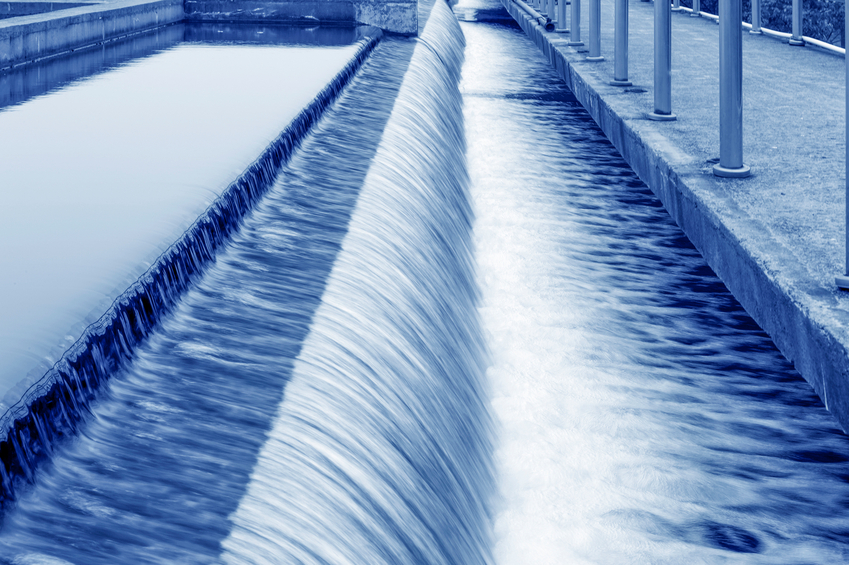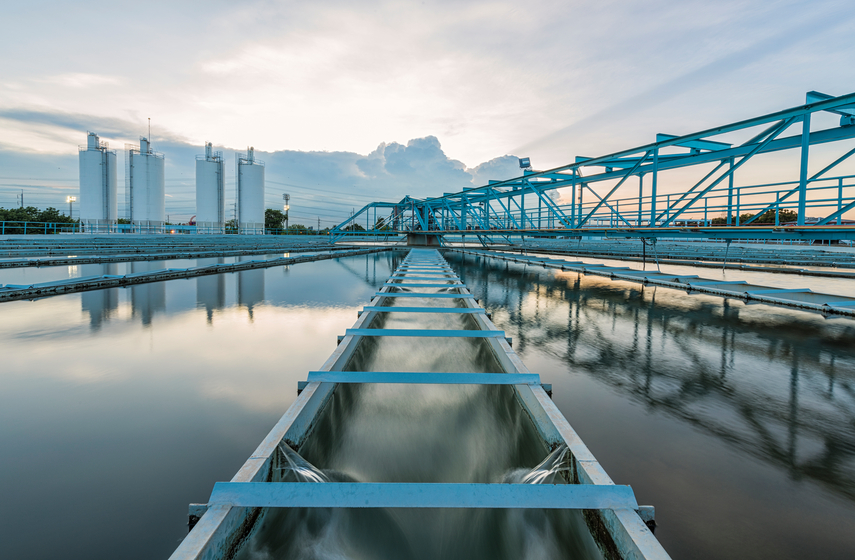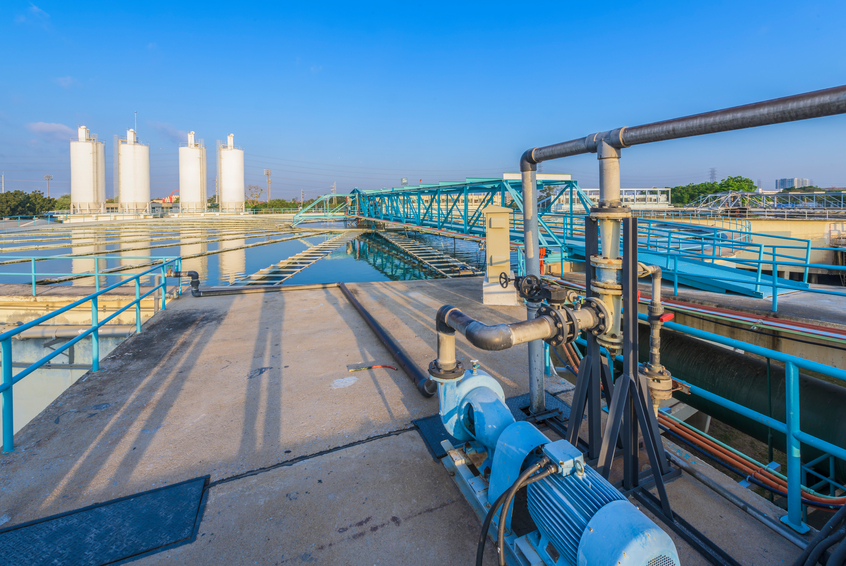Newfoundland and Labrador Chemical & Ethics/Regulatory 30 PDH Discount Package
Courses in this Package
An Introduction to Cooling Tower Water Treatment (C05-019)
An Introduction to Treatment of Closed Industrial Water Systems (H03-005)
Calculation of Gas Density and Viscosity (H02-008)
Cooling Water Problems and Solutions (M05-009)
Fundamentals of Chemistry (H05-001)
Reactor Water Chemistry (H03-001)
UV Disinfection Systems for Drinking Water - Overview (C04-006)
General Principles of Engineering Ethics and Statutes for Newfoundland and Labrador Professional Engineers (NL3-001)

This online engineering PDH course describes water treatment requirements for the most common cooling tower systems, once-through and open recirculating, in industrial applications.
Cooling water systems remove heat generated from a variety of industrial processes. There are three basic types of cooling water systems: once-through, open recirculating, and closed recirculating cooling water systems.
This 5 PDH online course is intended for mechanical engineers and other design and construction professionals seeking an introduction to the technologies, equipment and operational practices for treatment of cooling tower water.
This P.Eng. continuing education course is intended to provide you with the following specific knowledge and skills:
-
Learning about once-through cooling water systems
-
Learning about open recirculating cooling water systems
-
Learning about natural draft, induced draft, and forced draft cooling towers
-
Knowing the components of typical cooling towers are and their functions
-
Learning about drift eliminators and fill
-
Understanding water treatment requirements for enhanced and super-enhanced chiller condenser tubing
-
Understanding the importance of controlling legionella bacteria
-
Understanding the relationship between evaporation, blowdown and makeup
-
Learning about cycles of concentration and how they are employed in cooling water treatment
In this professional engineering CEU course, you need to review the course document titled, "An Introduction to Cooling Water Tower Treatment".
Upon successful completion of the quiz, print your Certificate of Completion instantly. (Note: if you are paying by check or money order, you will be able to print it after we receive your payment.) For your convenience, we will also email it to you. Please note that you can log in to your account at any time to access and print your Certificate of Completion.

This online engineering PDH course presents best practices for treatment of closed industrial water systems used to provide heating, cooling, or both for buildings and industrial processes.
The term "closed water system" refers to a water system that is used to provide heating, cooling, or both for industrial processes or facilities. The system is sealed (closed), sometimes under pressure, and is not open to the atmosphere. No evaporation takes place and, with good operation, water is lost only minimally from the system.
In general, water treatment for closed systems is much easier than for open systems. Makeup water is needed only to replace seal leakage and other incidental leakage. Because of the small makeup water requirements of these systems, they require little chemical treatment, which can be added intermittently as needed. Once properly treated, the system water does not form scale and has little or no corrosion potential. Two main types of closed water systems are used at many installations: hot water closed heating systems and chilled water closed cooling systems.
This 3 PDH online course is intended for mechanical engineers and other design and construction professionals wanting an introduction to the technologies, equipment and operational practices for treatment of closed industrial water systems used to provide heating, cooling, or both for industrial processes or facilities.
This P.Eng. continuing education course is intended to provide you with the following specific knowledge and skills:
-
Learning about treatment of hot water systems
-
Learning about treatment of closed chilled water systems, brine systems, and glycol systems to supply cold or chilled water for cooling processes and air conditioning
-
Learning about treatment of diesel engine jacket cooling systems
-
Learning about water treatment programs for both closed hot water and closed chilled water systems to control corrosion and deposition of microbiological organisms
-
Learning about treatment of makeup water
-
Learning about corrosion control program options;
-
Learn how to implement sulfite-caustic, nitrite-azole, and polysilicate-azole treatment programs
In this professional engineering CEU course, you need to review the course document titled, "An Introduction to Treatment of Closed Industrial Water Systems".
Upon successful completion of the quiz, print your Certificate of Completion instantly. (Note: if you are paying by check or money order, you will be able to print it after we receive your payment.) For your convenience, we will also email it to you. Please note that you can log in to your account at any time to access and print your Certificate of Completion.

This engineering online PDH course contains a discussion of, and an example calculation of, the density and viscosity of a specified gas at a given temperature and pressure. In this course, the Redlich Kwong equation will be used for calculation of the compressibility factor of a gas. The Sutherland formula will be discussed and used in example calculations. Another method for calculating the viscosity of air at a specified temperature and pressure will also be presented and discussed.
The density and/or viscosity of a gas is often needed for some other calculation, such as pipe flow or heat exchanger calculations. If the gas temperature is high relative to its critical temperature and the gas pressure is low relative to its critical pressure, then it can be treated as an ideal gas and its density can be calculated at a specified temperature and pressure using the ideal gas law. If the density of a gas is needed at a temperature and pressure at which it cannot be treated as an ideal gas law, however, then the compressibility factor of the gas must be calculated and used in calculating its density. The Sutherland formula can be used to calculate the viscosity of a gas at a specified temperature and pressure if the Sutherland constants are available for the gas.
This 2 PDH online course is intended for chemical, mechanical and environmental engineers. After completing this course, you will have knowledge about methods for calculating the density and viscosity of a gas at specified temperature and pressure.
This P.Eng. continuing education course is intended to provide you with the following specific knowledge and skills:
- Ability to calculate the density of a gas of known molecular weight at a specified temperature and pressure at which the gas can be treated as an ideal gas
- Ability to calculate the compressibility factor for a gas at a specified temperature and pressure, using the Redlich-Kwong equation, if the molecular weight, critical temperature and critical pressure of the gas are known.
- Ability to calculate the density of a gas at a specified temperature and pressure for which the gas cannot be treated as an ideal gas, if the molecular weight, critical temperature and critical pressure of the gas are known.
- Ability to calculate the viscosity of a gas at a specified temperature if the Sutherland constant for the gas is known and the viscosity of the gas at a suitable reference temperature is known.
- Ability to calculate the viscosity of air at specified air temperature and pressure.
- Ability to make all of the calculations described in these learning objectives using either U.S. or S.I. units.
In this professional engineering CEU course, you need to review the course document titled, “Calculation of Gas Density and Viscosity”. In addition, you need to review the Excel spreadsheet titled, "Real Gas Density Calculators_US or SI units".
Real Gas Density Calculators_US or SI units (43 KB)
Once you complete your course review, you need to take a multiple-choice quiz consisting of fifteen (15) questions to earn 2 PDH credits. The quiz will be based on both documents.
Upon successful completion of the quiz, print your Certificate of Completion instantly. (Note: if you are paying by check or money order, you will be able to print it after we receive your payment.) For your convenience, we will also email it to you. Please note that you can log in to your account at any time to access and print your Certificate of Completion.

This online engineering PDH course presents an overview of common chemical treatment program that may be required to maintain cooling water systems in good operating condition. Reasons and means are discussed for controlling scale, deposition, corrosion, and biological fouling. The discussion also covers the information on chemicals used for control, and methods available to permit operation within the limits.
The three primary reasons that the cooling water treatment may be required are to control corrosion, scale formation, and the growth of biological agents. Any of these problems - or more usually a combination of them - can cause a loss of efficiency, shorten equipment life and push up operating costs. Imagine the large amounts of dollars lost when insufficient cooling suddenly curtails operations of process equipment.
This 5 PDH online course is applicable to all engineers and designers involved in power plants, oil and gas, chemical and petrochemical process facilities, refineries, industrial plants and HVAC systems in commercial buildings.
This P.Eng. continuing education course is intended to provide you with the following specific knowledge and skills:
- Understand the critical parameters such as conductivity, TDS, pH, alkalinity and saturation index applicable to cooling water treatment
- Understand the factors responsible for scale and corrosion
- Understand the types of scale and methods to minimize its formation
- Understand relationship between the cycles of concentration and blowdown
- Understand the physical methods of treating water such as softener, dealkalizer, ion-exchanger, filtration, and electronic de-scaling equipments
- Understand the corrosion types and the control techniques to mitigate corrosion
- Learn four types of corrosion inhibitors including, anodic, cathodic, mixed and adsorption types
- Understand the principles of cathodic protection
- Learn the possible types of biological fouling and the treatment methods including oxidizing and non-oxidizing biocides
- Understand the chemical feed equipment for closed and open cooling water systems
- Learn the five application methods for dosing chemicals including their benefits and limitations
- Learn the control sensors and monitoring devices used in cooling water treatment
In this professional engineering CEU course, you need to review the document titled "Cooling Water Problems and Solutions".
Upon successful completion of the quiz, print your Certificate of Completion instantly. (Note: if you are paying by check or money order, you will be able to print it after we receive your payment.) For your convenience, we will also email it to you. Please note that you can log in to your account at any time to access and print your Certificate of Completion.

This online engineering PDH course addresses the basics of chemistry. It introduces concepts on the atomic structure of matter. It also discusses the periodic table and the significance of the information in a periodic table. Furthermore, it explains chemical bonding, the laws of chemistry, and chemical equations.
This 5 PDH online course is applicable to chemical and environmental engineers, design and construction personnel, technical staff and facility operators who are interested in gaining a better understanding of the basics of chemistry.
This P.Eng. continuing education course is intended to provide you with the following specific knowledge and skills:
- Characteristics of atoms
- The periodic table
- Chemical bonding
- Chemical equations
- Acids, bases, salts and pH
In this professional engineering CEU course, you need to review Module 1, "Fundamentals of Chemistry" of the Department of Energy Publication DOE-HDBK-1015/1-93, "Chemistry".
Upon successful completion of the quiz, print your Certificate of Completion instantly. (Note: if you are paying by check or money order, you will be able to print it after we receive your payment.) For your convenience, we will also email it to you. Please note that you can log in to your account at any time to access and print your Certificate of Completion.

This online engineering PDH course describes the chemical measures taken to retard the corrosion often found in water systems. It also addresses the consequences of radioactivity on facility cooling water systems.
Radiation synthesis is a process that takes place in the reactor coolant system. This phenomenon is limited to the reactor coolant system because of the high flux (radiation) levels that exist in the core region and further complicate chemistry control of the reactor plant.
This 3 PDH online course is applicable to chemical engineers, design and construction personnel, technical staff and facility operators who are interested in gaining a better understanding of the reactor water chemistry.
This P.Eng. continuing education course is intended to provide you with the following specific knowledge and skills:
- Understanding water chemistry parameters
- Understanding the effects of radiation on water chemistry
In this professional engineering CEU course, you need to review Module 3, "Reactor Water Chemistry" of the Department of Energy Publication DOE-HDBK-1015/1-93, "Chemistry".
Upon successful completion of the quiz, print your Certificate of Completion instantly. (Note: if you are paying by check or money order, you will be able to print it after we receive your payment.) For your convenience, we will also email it to you. Please note that you can log in to your account at any time to access and print your Certificate of Completion.

This online engineering PDH course provides an overview and background of technical information on the application of ultraviolet light for the disinfection of drinking water by public water systems. This overview includes a description of basic chemical and physical principles, the components of UV equipment, and performance monitoring for UV facilities. The overview material intended to present generally accepted facts and research results related to UV disinfection. The material covers many aspects for consideration when implementing a UV disinfection system.
This 4 PDH online course is intended for wastewater treatment engineers and environmental professionals seeking to gain an understanding of UV disinfection technologies. The course will also be beneficial for a student with basic knowledge of water treatment design and is interested in learning about how UV disinfection is now being applied as a disinfection alternative for municipal water supply systems. It is also an excellent overview for those professionals working in the field of water treatment.
This P.Eng. continuing education course is intended to provide you with the following specific knowledge and skills:
- Learning the background on drinking water treatment
- Understanding UV disinfection properties and mechanisms
- Understanding the components and performance of various types of UV systems
- Learning the accepted facts and research results relating to UV disinfection
- Knowing the support information for UV disinfection consideration
In this professional engineering CEU course, you need to review Chapter 2, "Overview of UV Disinfection" of the EPA Guidance Manual EPA 815-R-06-007, "UV Disinfection Guidance Manual for the Final Long Term 2 Enhanced Surface Water Treatment Rule, November 2006".
Upon successful completion of the quiz, print your Certificate of Completion instantly. (Note: if you are paying by check or money order, you will be able to print it after we receive your payment.) For your convenience, we will also email it to you. Please note that you can log in to your account at any time to access and print your Certificate of Completion.

This online engineering PDH ethics course presents the principles of engineering ethics and statutes for Newfoundland and Labrador Professional Engineers.
Engineering ethics is (1) the study of moral issues and decisions confronting individuals and organizations involved in engineering and (2) the study of related questions about moral conduct, character, ideals and relationships of peoples and organizations involved in technological development (Martin and Schinzinger, Ethics in Engineering).
This course will address the principles of engineering ethics that every engineer is expected to live by when practicing their profession. This course also provides an overview of PEGNL’s general statutes and regulatory laws. It will also present unique ethical studies randomly selected to demonstrate ethical challenges for professional engineers and alternatives to address these challenges.
This 3 PDH online course is applicable to Professional Engineers licensed in Newfoundland and Labrador and who are required to demonstrate continuing professional competency in ethical practice and regulatory learning as a condition of their license renewal.
This online course is intended to provide you with the following specific knowledge and skills:
- Understanding the definition of engineering ethics
- Learning about the important principles of the Engineer’s Professional Responsibility
- Gaining a general overview on PEGNL’s procedure of filing an allegation, its resolution by Registrar and its referral to Complaints Authorization Committee (CAC)
- Familiarizing with PEGNL’s general statutes and regulatory laws
- Understanding professional ethical practices through presenting realistic case studies
Upon successful completion of the quiz, print your Certificate of Completion instantly. (Note: if you are paying by check or money order, you will be able to print it after we receive your payment.) For your convenience, we will also email it to you. Please note that you can log in to your account at any time to access and print your Certificate of Completion.